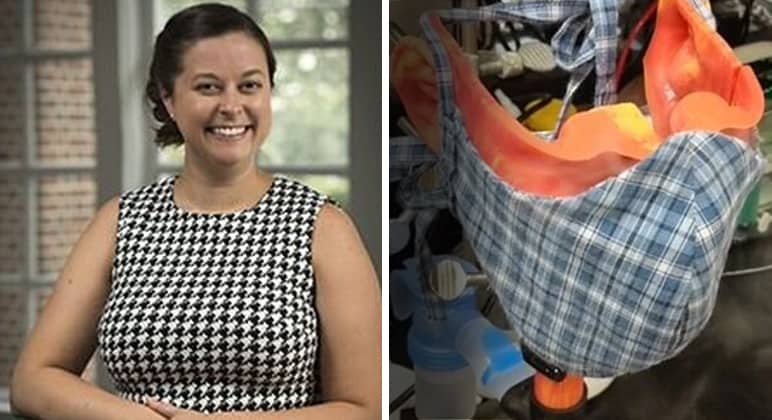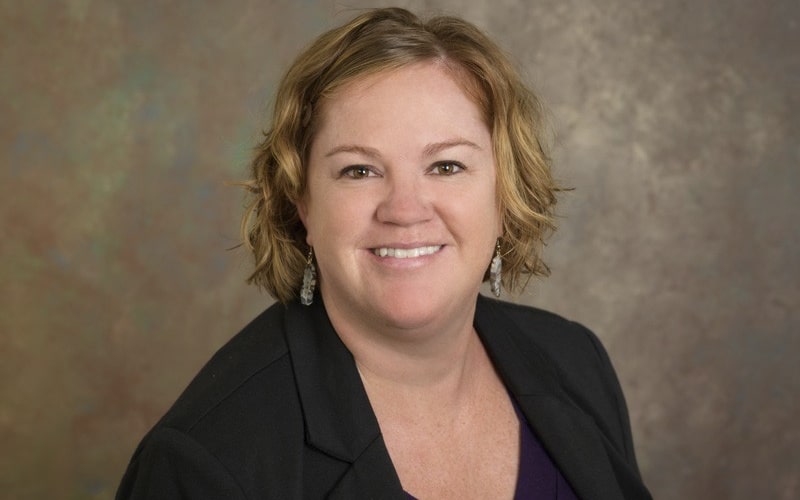RESEARCH
DISCOVERY
A Blog Devoted to UD Innovation, Excellence & Scholarship
COVID-19
Face Mask Fit Matters
A UD research group led by Engineering Prof. Cathy Fromen (above) and graduate students Emily Kolewe, Zach Stillman and Ian Woodward examined how much of a person’s breath gets past different kinds of masks being worn to mitigate the coronavirus.
A University of Delaware research team developed a novel method for evaluating how well face masks keep aerosols in, finding that tightly fitting N95 respirator masks are more protective than loose-fitting N95 masks, surgical masks and sewn masks. However, even an imperfectly fitting mask is better than none at all. What’s more, for homemade masks, a few simple tweaks — layering in a coffee filter and using a pipe cleaner to reduce the gap around the nose — could enhance your protection.
The results were published Dec. 16 in PLOS One. The research group led by Cathy Fromen, assistant professor of chemical engineering, includes graduate students Emily Kolewe, Zach Stillman and Ian Woodward.
A New Approach to Mask Research
Since COVID-19 struck, face masks have become a hot new research topic around the world. Most research focuses on material characterization and efficiency. Fromen’s group set out to study aerosol transmission from the gaps around the sides, bottom and nose area of masks.
The group created an in vitro model to quantify particle transmission using a nebulizer, or a device that generates inhalable mists of medicine for diseases such as asthma, and a 3D printed replica of a face, nose and mouth.
The team found that tightly fitting N95 respirators are the best-performing face masks, which suggests that these masks should be prioritized for healthcare workers who will be fit-tested for them. In comparison, loosely fitting N95 masks, surgical masks and sewn masks all allowed 35-70-fold more particles to be released.
The team found that a few upgrades to sewn facemasks made them more protective. Placing a coffee filter between layers of cotton fabric or using a pipe cleaner to make a nose grip reduced the particle counts that escaped from these homemade masks.






